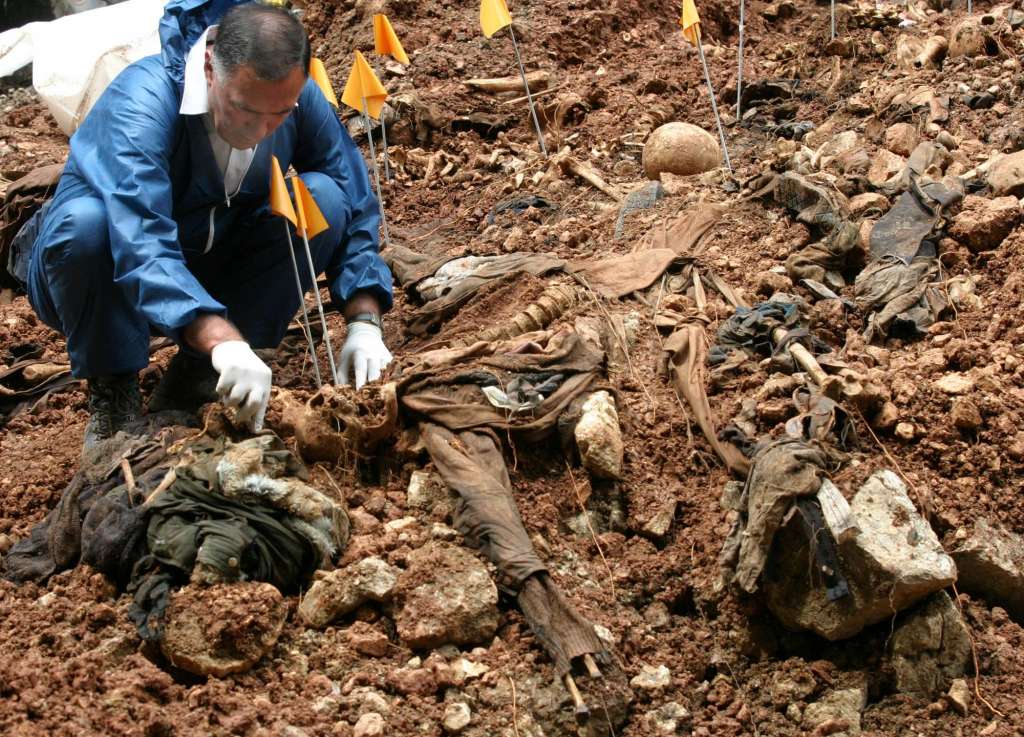Tekst: Hana Imamović, FOTO FENA /
A group of Bosnians and Herzegovinians and Americans of BiH origin united in the “Working Group for BiH” has asked the UN General Assembly to pass a resolution condemning the denial of genocide and other war crimes in BiH.
In a letter to UN General Assembly President Abdulla Shahid, they stated that the resolution could be modeled on the January 2022 UN Resolution condemning the Holocaust denial and praising states that have preserved Nazi concentration camps for education.
In that context, the “Working Group for BiH” demands that a resolution be passed on the 30th anniversary of the beginning of war crimes committed in BiH and the opening of numerous concentration camps, which would ban genocide denial and other war crimes established by international courts.
Professor of philosophy and studies of the Holocaust and genocide at the State University of Southern Connecticut and a member of the Board of Directors of the Yale University Genocide Study Program, David Pettigrew, told FENA that the resolution should support the establishment of memorials and museums on the sites of former concentration camps and places where serious crimes were committed, such as Omarska, Barutni Magacin, Bone Hospital and Vilina Vlas.
“The leadership of the BiH entity of Republika Srpska denies the grave crimes convicted before the United Nations International Criminal Tribunal for the Former Yugoslavia and the International Court of Justice. The ban on erecting memorials at concentration camps and committing serious crimes in Republika Srpska is part of a comprehensive denial strategy that includes glorifying convicted war criminals,” the letter added.
They also think it is very important that the legal practice and principles of the European Union recognize the denial of genocide as inciting future violence against earlier targeting of the group.
They note that many former locations of concentration camps and atrocities are located in the BiH entity of Republika Srpska, where genocide is denied and convicted war criminals are glorified, and survivors are systematically banned from erecting memorials.
Great majority of Bosniaks in Foča were killed and many of these war crimes have been documented. In the first months of the 1992 aggression, all twelve mosques were destroyed, including the famous Aladža mosque built in 1549.
In the verdict of the Hague Tribunal in the Krajišnik case, we read that as a result of these crimes “all traces of the Muslim presence and culture in Foča were erased”, and the violence against women in Foča led to a turning point in the Hague tribunal’s ruling – that recorded rape in the annals of jurisprudence as a crime against humanity.
In the west, in Herzegovina, there was a network of concentration camps, in places where municipalities with a majority of Croats ban memorials, such as Dretelj (Čapljina), Bone Hospital (Stolac), Ljubuški, Gabela (Čapljina) and Heliodrom (Mostar) .
A plaque dedicated to the victims was removed at the Bone Hospital in Stolac. Survivors’ associations have called for the site to be protected as a memorial, but have been thwarted in their efforts.
“These places must be protected national memorial sites. The model for such a protected national memorial site is the Srebrenica Memorial Center. The Srebrenica Memorial Center is located in Republika Srpska. It was created by the cooperation of survivors, allies and representatives of the international community, including three high representatives who made four decisions (using their Bonn powers) over a period of seven years. Their extremely important decisions secured land, appropriated buildings, established an administrative structure and passed a law on the existence of memorials,” the letter reminds.
(https://fena.ba)

